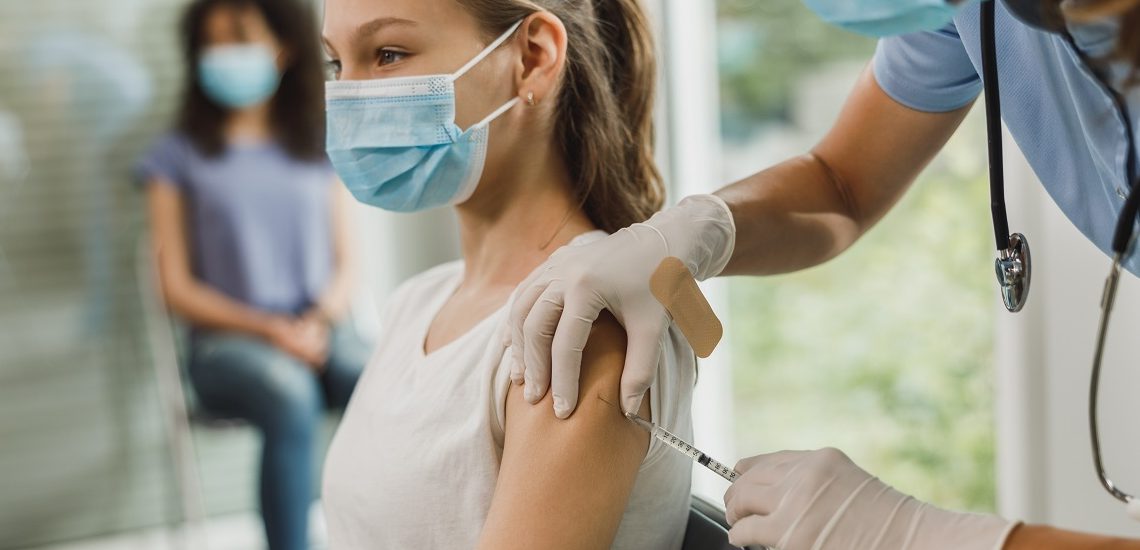EMA, the European Medicines Agency. has approved Biontech/Pfizer’s Corona vaccine for five- to eleven-year-olds. The Standing Committee on Vaccination (Stiko) recommends the vaccine for this age group for children with pre-existing conditions and for children who have contact with high-risk patients. In principle, however, all children can be vaccinated after talking to a doctor. But do children and adolescents make their own decisions about vaccination, or do their parents have to agree? And what happens if parents disagree? Here what doctors should know.
Does the child have to consent?
Whether children or adolescents themselves must consent to vaccination depends on their capacity to consent. This means that the underage children must understand the importance of the vaccination. There is no fixed age limit for this. However, the younger the patient, the less likely they are to be able to make this decision on their own.
Developmental psychology divides children and adolescents into three groups. “Doctors can use this division as a guide,” advises Ecovis lawyer Heidi Regenfelder in Munich:
From 16 years young people can decide for themselves. Parents do not have to agree to a vaccination. Something else is valid only if the understanding ability is not present.
Between 14 and 16 years it depends on the concrete consent ability of the young person. This must ultimately be decided by the vaccinator in a discussion with the adolescent. If, for example, an adolescent asks questions, deals with the topic and does not seem overwhelmed in the conversation, then this would be proof that he or she is able to decide on the vaccination himself or herself.
Before the age of 14, the ability to consent is not given. This means that the parents must give their consent. But even here, there may be exceptions in individual cases, if adolescents are already very mature for their age. “The decisive factor, however, will usually be the consent of the custodial parents, especially for those under the age of twelve,” says attorney Regenfelder.
Consent of the custodial parents
Parents who have joint custody of their children also decide jointly on vaccination — regardless of whether they live together or separately. The Federal Court of Justice (BGH) has ruled that vaccination is not a matter of everyday care that the parent with custody makes alone.
What happens if parents cannot agree?
If one parent is in favor of vaccination but the other parent is opposed, the parents must try to come to an agreement. If this does not succeed, either parent can petition the appropriate family court to give the decision about vaccinating the child against COVID-19 to the father or mother alone. Thus, the court does not determine whether or not a child is vaccinated, but rather decides who may make the decision for the child. “For the court, the child’s best interests are the main factor in determining which parent it assigns the decision about vaccination,” says Heidi Regenfelder. In addition, the arguments of the parents are decisive — and their basis. The court’s assessment is based, for example, on whether the parents have obtained medical advice, whether they have followed science and expert committees, or whether there are pre-existing conditions that speak in favor of vaccination.
Previous case law recognizes the immunization recommendations of the Stiko as the medical standard for the best interests of the child. If the parents disagree, the decision of the family court is likely to be based on the vaccination recommendation of the Stiko. Thus, the parent who is in favor of vaccination may decide, as long as there are no special risks of vaccination in the child. In addition, the child itself must want the vaccination. Thus, in a dispute over the Corona vaccination of a 16-year-old child, the Frankfurt am Main Higher Regional Court decided: “If there is a Stiko recommendation and the child’s will to be vaccinated, the vaccination decision is assigned to the parent who is in favor of the vaccination.”

















